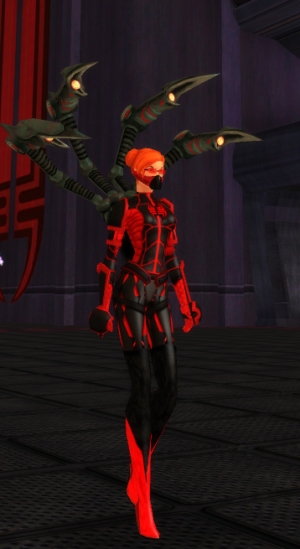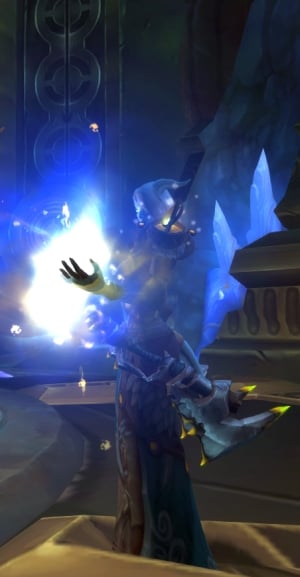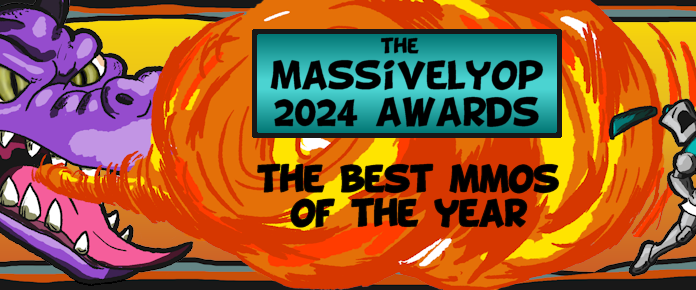
It seems like pretty much nobody is happy with how scaling is working in World of Warcraft at the moment. The game’s scaling means that you seem to be getting actually weaker as you level up, which is sort of the antithesis of what you want with a brand new expansion. The best way to use the new signature artifact is to not use it at all but in fact stash it away to spoof the aforementioned item level scaling. Is scaling just bad all around?
Of course, the real problem here isn’t the scaling itself. Level scaling, as a concept, has a lot of merit; it’s just that there are issues in place about what “scaling” and “levels” are supposed to mean. So let’s talk a little bit about scaling, the concept of levels, and how many games have made this work for a very long time without ever running into these specific issues.
 It’s hard to track down the exact genesis of character levels back in the original version of Dungeons & Dragons, but if you look up the original rules there’s a fun aspect that makes it very clear what was being done. The original rules mention that experience was meant to be relative, based on what level of the dungeon the character was on. In other words, it makes perfect sense that your magic-user would be described as 8th level; that’s how deep in the dungeon you’re supposed to be! You’re equipped for handling threats that far down and no further.
It’s hard to track down the exact genesis of character levels back in the original version of Dungeons & Dragons, but if you look up the original rules there’s a fun aspect that makes it very clear what was being done. The original rules mention that experience was meant to be relative, based on what level of the dungeon the character was on. In other words, it makes perfect sense that your magic-user would be described as 8th level; that’s how deep in the dungeon you’re supposed to be! You’re equipped for handling threats that far down and no further.
Obviously, that particular meaning has been lost to time (for example, we now expect our characters to be able to venture outside reliably). But the term and concept has stuck with us. It’s pretty uniformly agreed that your level indicates how strong you are, which is where scaling becomes kind of wonky; if you hit level 25 and all of your enemies also become level 25, you haven’t really gotten any stronger.
At least, not if the only benefit you had was being scaled up to level 25. This is, in and of itself, part of the problem. But let’s take a step back and start by understanding the problem scaling is intended to solve, which also ties into that old-school D&D problem.
Suppose you have your favorite character, a magic-user. Now, suppose you’re going to bring him over to do something with your friends who are just starting the game. They’ve made a whole bunch of new characters who are all level 1, while you’re level 20 or so. Your adventure can either involve you faffing about with them in level 1 areas while you grow increasingly bored as things just explode when you look at them, or they can tag along gamely behind you and watch as you actually do all of the fighting. Neither one sounds fun for all parties involved.
Level scaling is the solution to this problem. City of Heroes both allowed you to scale your character level as well as scaling enemy levels, which worked out marvelously. You could still get benefits from partying up with your friends and scaling up to your level. You’d be in areas they could access, and numerically they’d be as capable of contributing to combat as you; they wouldn’t have all of your tricks, but you would all be taking part.
It has other benefits, though. If you have a game with 50 levels and five areas, you can divide those areas into bands of 10 levels. This is fine, but it also means all of the stuff in the game for characters at the level cap will need to be in the highest-level area. Scaling means that you can provide an effective challenge in all five areas, an increase in places to do stuff by a significant margin.
Besides which, it also saves you from the drawbacks of games wherein you can easily outlevel content. You no longer outlevel anything; it’s all relevant eternally. The benefits may be lesser, but that’s a case-by-case matter.
In other words, what level scaling ultimately does is turn a game from being a level-based game into being a more organic one. Level is a measure of character power only insofar as it measures how many power milestones you’ve hit, like more skill-based games. This means you no longer have quite so many things you can discount as trivial, but it means that you don’t wind up with older stuff no longer having the most remote threat.
 However, we touched upon what makes this work just above. Notice how I said scaling in CoH wouldn’t affect your total number of tricks? That’s important. A level 50 character won’t have extra stats when partied with a bunch of level 10 characters… but the extra abilities gained over 40 levels are still there. In short, you still feel like the character is much more powerful than the others.
However, we touched upon what makes this work just above. Notice how I said scaling in CoH wouldn’t affect your total number of tricks? That’s important. A level 50 character won’t have extra stats when partied with a bunch of level 10 characters… but the extra abilities gained over 40 levels are still there. In short, you still feel like the character is much more powerful than the others.
You know what game handles worldwide level scaling very well? The Elder Scrolls Online. I never felt at any point like gaining a level was anything but a benefit there, even though everything leveled right along with me. Because that meant new points to spend on things, new places to raise my skills, and more options all around. Which meant that enemies could become trivial not because my stats were greater than theirs, but because I had new ways of dealing with them. Because now I was passively recovering huge amounts of health and could focus on fewer stats thanks to skill modifications.
Heck, look at Guild Wars 2. That game has had level scaling across the open world in since launch, and yet it works, because higher levels mean better stats on gear (which grow faster than leveling stats), more skills (and skill slots from lower levels), and better enhancements. Your higher-level character can do a lot of stuff that lower-level ones can’t, especially with certain builds which don’t come online until you have a few levels.
Herein we see the core of what makes level scaling work, which is really the same thing that makes “no level” games work. When done right, level scaling just makes your overall strength into a number, but it’s otherwise level-agnostic. Your real measure of power is through extra skills and the enhancement of same.
This also explains why WoW is having such issues with scaling. In GW2, a new level always means gaining something; every odd level is more specialization points, there are lots of things unlocked, and even the otherwise “emptiest” levels with nothing more than a stat boost still contain free gear rewards. A level always gives you something beyond an inherent stat bump. By contrast, hitting level 116 in WoW at this point not only awards you nothing, it actually takes away from your existing abilities by turning off Legendary items. You get notably weaker by leveling.
There are games like this out there, of course. For example, Final Fantasy VIII had the exact same problem, where levels did not in and of themselves confer any benefit. Instead, players were encouraged to avoid leveling at all times and end battles in such a way that they gained no experience. Oblivion had a similar problem, which players get around frequently by never leveling up because there were, well, no benefits to leveling up.
Seriously, there’s a whole article about the leveling problem for that game. This is not a design to emulate.

A similar problem is that WoW’s scaling is for both character level and item level. The proportions of this don’t matter, and I explained the problems with the latter when it was first introduced. But then, you can probably suss out the problem already; the whole point of “scaling” working is that you still get stronger at a rate faster than your enemies. Letting them scale up to your power level, even at a slower rate, obviates the purpose of having power improvements.
Put another way, let’s say a 10% increase in your damage means enemies get 5% more health. Why not just lower the main stat increase to 5% and have the same net effect?
Level scaling, in and of itself, is a good thing. When handled correctly it gives players a reason to use the whole game at the level cap instead of just parts of it, and you still feel all of the satisfying bits of gaining in power when your level increases. It’s just that when it’s handled inelegantly by shoving the game full of empty levels with no actual power climb, the levels feel pointless.
Which is the sort of thing even the original D&D rules knew to avoid, and they were the first.
 Sometimes you know exactly what’s going on with the MMO genre, and sometimes all you have are Vague Patch Notes informing you that something, somewhere, has probably been changed. Senior Reporter Eliot Lefebvre enjoys analyzing these sorts of notes and also vague elements of the genre as a whole. The potency of this analysis may be adjusted under certain circumstances.
Sometimes you know exactly what’s going on with the MMO genre, and sometimes all you have are Vague Patch Notes informing you that something, somewhere, has probably been changed. Senior Reporter Eliot Lefebvre enjoys analyzing these sorts of notes and also vague elements of the genre as a whole. The potency of this analysis may be adjusted under certain circumstances.










